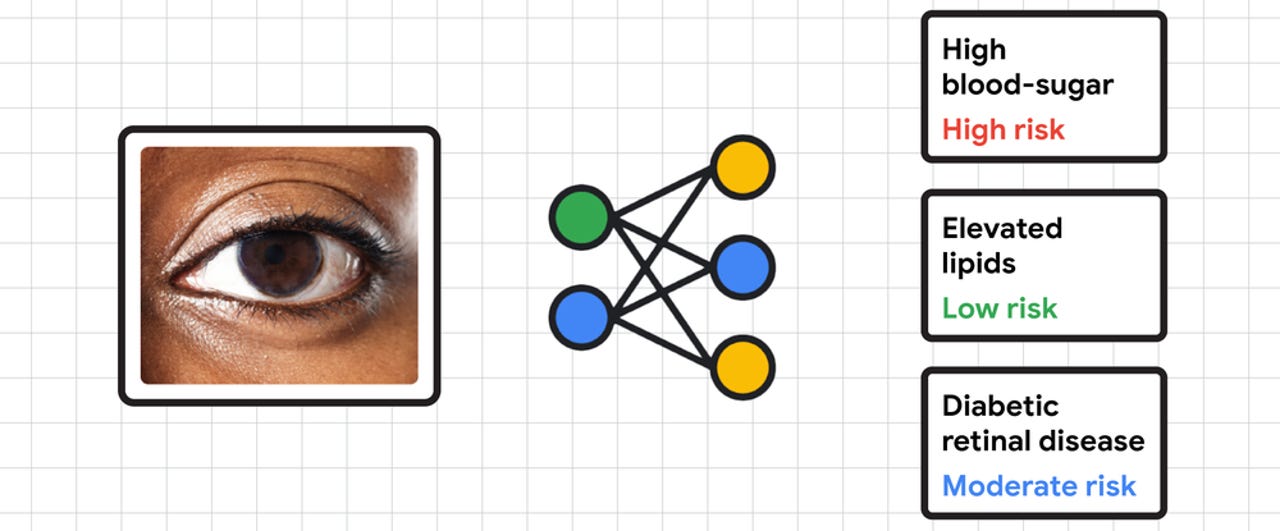































Smartphones are already useful replacements for all kinds of tools, from maps and GPS devices to cameras and credit cards. In the future, your phone might also serve as a serious medical diagnostic tool.
Google on Thursday shared new lines of research it's pursuing that would help lower the barriers to healthcare with tools like smartphones and AI modeling. If the research advances, the pictures on your camera roll could one day help determine whether you have diabetes. Or you could use your phone's microphone to listen to your heart.
Google also shared new consumer tools it's introducing, within products like Google Search and Youtube, to make healthcare more accessible.
Describing Google's "company-wide health efforts" in a blog post, Google Chief Health Officer Dr. Karen DeSalvo wrote, "We embed health into our products to meet people where they are. "
 Google
Google To that end, Google researchers are exploring whether photos of the exterior of a person's eye, taken with existing tabletop cameras in clinics, could be used to detect diabetes-related diseases. Greg Corrado, Head of Health AI, said the research has had early, promising results. Now, Google will work on clinical research with partners, like EyePACS and Chang Gung Memorial Hospital (CGMH), to investigate if photos from smartphone cameras can help detect diabetes and non-diabetes diseases from external eye photos as well.
"While this is in the early stages of research and development, our engineers and scientists envision a future where people, with the help of their doctors, can better understand and make decisions about health conditions from their own homes," Corrado wrote.
Google is also exploring how a smartphone's built-in microphones could record heart sounds when placed over the chest. Listening to someone's heart and lungs is a critical part of a physical exam, but screening for problems like heart valve disorders typically requires specialized equipment, like a stethoscope or an ultrasound, and an in-person assessment.
"We're currently in the early stages of clinical study testing, but we hope that our work can empower people to use the smartphone as an additional tool for accessible health evaluation," Corrado wrote.
Google is also researching ways to make ultrasounds more accessible with the use of AI. The company has partnered with Northwestern Medicine to develop and test models that can make ultrasound evaluations more automated and accurate.
As far as existing tools go, YouTube this week is rolling out new ways to find credible health information in Japan, Brazil, and India. Within those markets, YouTube is adding health source information panels on videos. It's also rolling out health content shelves that more effectively highlight videos from these sources when people search for specific health topics.
Meanwhile, Google recently introduced a Google Search feature that shows you the appointment availability of healthcare providers. Google is still in the early stages of rolling this feature out, the company said Thursday, working with partners like MinuteClinic at CVS and other scheduling solution providers.
 Tags quentes :
Saúde
Tags quentes :
Saúde